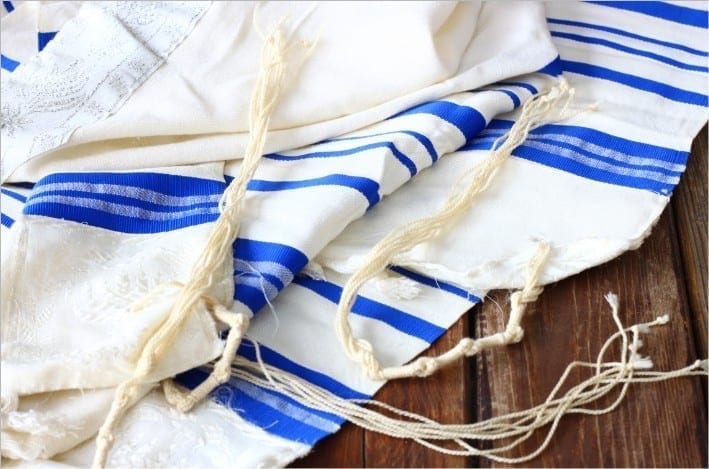In my mind, synergy exists when things fall into place to create something big and new—and, hopefully, wonderful. So it was with the sefirah event held by the Kleinman Family Holocaust Education Center on May 14th. Over 500 women and Bais Yaakov students came together for an evening of history and inspiration. The subject matter was ostensibly the Bais Yaakov of Shanghai during the Holocaust. But really, it was the story of individuals and the threads that bind us together. Grandmothers brought their daughters and granddaughters to the event (I brought my own ten-year-old daughter!). Bais Yaakov educators brought their students. The event chair, Brochie Kleinman, was there with four generations of her family, including her own mother as well as her mother-in-law, Holocaust survivor Ethel Kleinman, and the next two generations of her family. Brochie spoke eloquently about how KFHEC was founded with the vision of providing history, perspective and meaning by telling the story of how Torah and mitzvos remained the overarching force behind our survival and rebirth from the Holocaust. The “star” of the evening was an 80-yearold woman who died in Los Angeles in 2008. She was widowed and childless. It fell to her late husband’s cousin’s daughters to arrange for a levayah and burial in Israel and for the disposal of her belongings.

As they were going through her papers, they found a letter from Rabbi Chaim Shmuelevitz to this woman’s father regarding the lending of a Torah to the Mirrer Yeshiva in Shanghai in 1942. They found passports with German swastikas, report cards from Shanghai, photo albums, wedding invitations and so much more. The family knew there was a story to be told to future generations and so they donated this treasure trove to the KFHEC. That is how we came to know Yehudith Cohn Goldbart. That is how her legacy will live on to inspire future generations to follow her model of achdus and ahavas Yisrael. She was a student and later a teacher in the Bais Yaakov of Shanghai. She started the first Bnos group in Los Angeles and she was an activist for shmiras Shabbos all of her life. I am so thrilled to have been a part of the production of the book and documentary about her story. At the event, we were transfixed by Rebbetzin Chaya Small of Chicago. Rebbetzin Small was a young girl in the Bais Yaakov of Shanghai. And then, the audience was electrified when Rebbetzin Chaya Bluma Hellman got up to speak about her experience in Shanghai. As a young woman in Shanghai, she married Rabbi Uri Shraga Hellman (later the high-school principal of the Bais Yaakov in Williamsburg and then in Boro Park). The couple was married in the living room of Rebbetzin Small’s parents’ Shanghai home. We rise when a great rav walks into a room because it is as if the rav embodies all of Torah. For the women at the event, it was as if Rebbetzin Small and Rebbetzin Hellman embodied the history of Bais Yaakov—a mesorah that started with Sarah Schenirer and continues today.
And here we all were in this one room in Brooklyn in 2014! Dr. Leslie Ginsparg Klein, an educator who has extensively studied and written about Bais Yaakov, moderated the panel discussion. Rivka Malka Swartz, a Touro College intern at KFHEC, spoke about her research into Yehudith Cohn Goldbart’s life. Rochel Weinstein represented Mrs. Goldbart’s family and shared with the audience how overwhelmed the family is that her legacy is being kept alive. Our educational director, Julie Golding, spoke about the KFHEC educational methodology and plans for the future. Last, and far from least, popular educator Chevi Garfinkel shared stories about her grandmother, Rebbetzin Chana Garfinkel, the creator of 22 pre-war Bais Yaakovs, who was also in Shanghai during the Holocaust. She said that she is not aware of any students of those original Bais Yaakovs who survived the war—and yet the institution of Bais Yaakov remains strong today. Let’s go back to that word, “synergy.” Do things really just fall into place? Of course not! The KFHEC has a great team and I’m very fortunate to work here on such meaningful projects. But, as we all now, it is really all siyata dishmaya.



